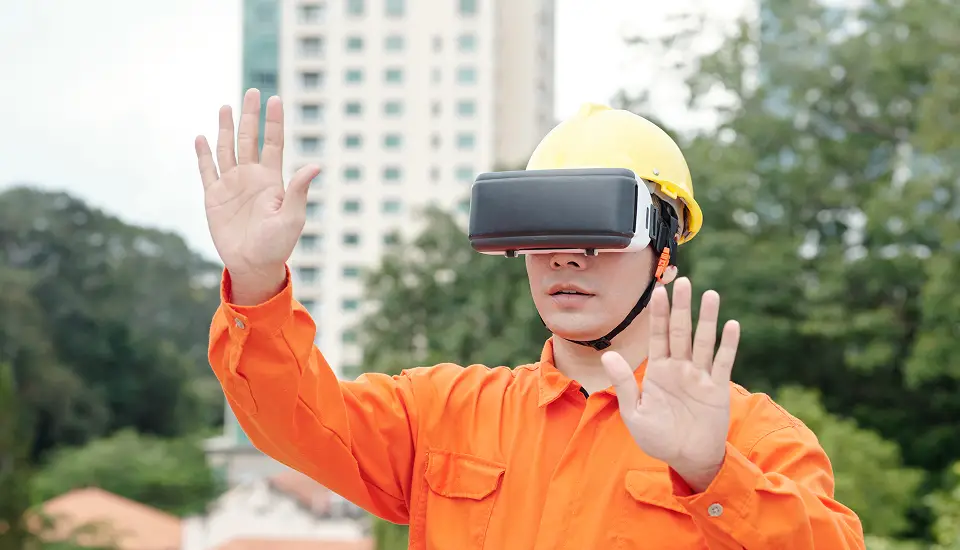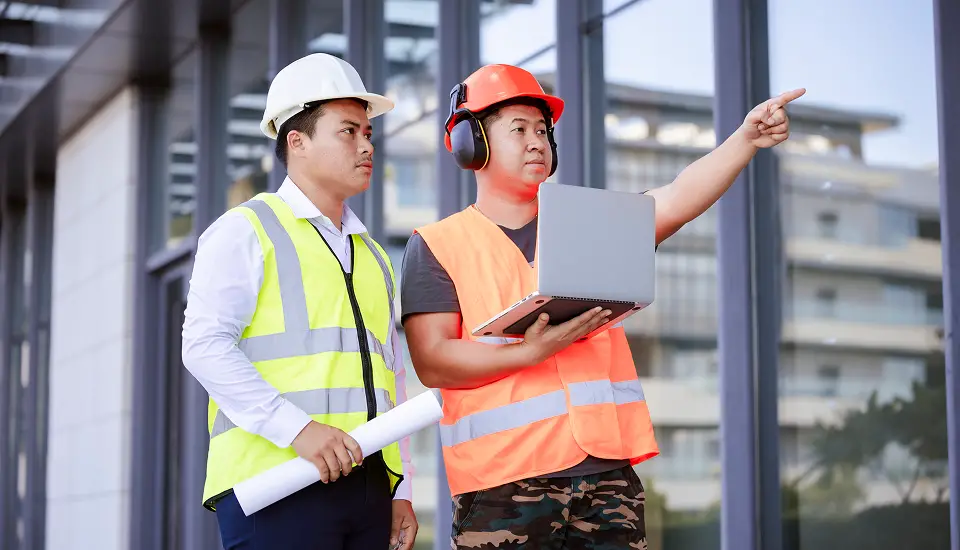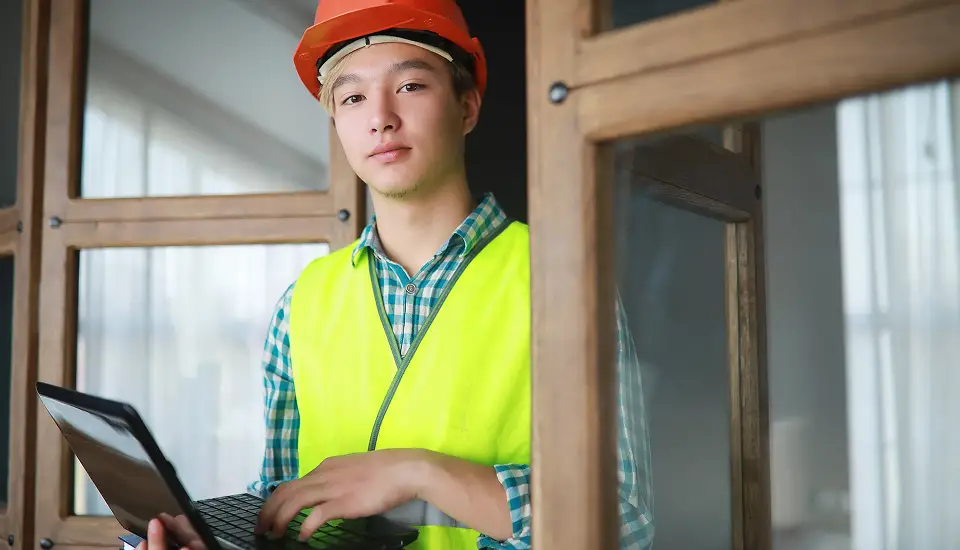Automation in construction is revolutionising how we build by boosting efficiency, precision, and scalability across the sector. Technologies such as AI-powered design tools, 3D printing, and robotic machinery are reshaping the industry and helping companies remain competitive despite labour shortages.
In Australia, the construction sector continues to face critical skill gaps. To unlock the full potential of automation, many businesses are turning to offshore expertise as a strategic solution. Outsourcing technical roles allows firms to accelerate innovation, reduce delays, and stay ahead in a rapidly evolving market.
According to McKinsey & Company, automation and digital collaboration are key to the future of construction, making global talent integration more vital than ever.
This blog explores how offshoring supports automation in construction, featuring real-world success stories from Carrera by Design and Oceanis.
Automation in Construction: A Game-Changer for the Industry

Automation in construction is transforming the sector by enhancing speed, safety, and accuracy. Technologies like AI-powered design tools, robotics, 3D printing, and BIM (Building Information Modelling) are helping companies build smarter and more efficiently.
Key Technologies at Work
- BIM streamlines planning, clash detection, and cost estimation.
- 3D printing enables rapid, large-scale construction with reduced waste. See Australia’s first 3D printed house.
- Drones and robotics improve site safety and surveying.
- AI supports predictive maintenance, scheduling, and resource planning.
These tools are no longer optional; they are essential for future-ready construction.
The Talent Gap and Offshore Opportunity
Despite the availability of tech, Australia’s construction sector faces a persistent shortage of skilled labour, especially in digital roles. Offshore teams offer a practical solution by supplying specialised expertise in CAD, drafting, and AI integration.
Carrera by Design leveraged offshore talent to streamline drafting and production workflows, accelerating project delivery while maintaining quality. Oceanis filled niche design and engineering roles through offshoring, enabling them to meet complex project demands.
Automation with Offshore Support
Adopting automation requires more than software, it needs skilled professionals. Offshore talent bridges this gap, allowing companies to scale automation without the burden of local shortages.
Overcoming Skill Gaps with Offshore Expertise

Australia’s construction sector continues to face critical skill shortages, especially in digital and engineering roles that are essential to scaling automation in construction. These talent gaps can delay innovation and strain local resources, but offshoring offers a strategic, long-term solution.
Why Offshoring Works
With access to global talent pools, companies can quickly source specialised skills in areas like CAD, 3D modelling, and AI integration. Partnering with experienced offshore providers allows businesses to build flexible teams that support innovation without compromising quality.
Carrera by Design
As demand increased, Carrera by Design turned to offshoring through Staff Domain. Their offshore team managed design drafts and set-out drawings, enabling their Sydney team to focus on project execution. This setup enhanced productivity and maintained their high standards.
Oceanis
For Oceanis, finding local specialists in aquatic design proved difficult. They built a team aligned with their technical and cultural needs through offshore recruitment. This seamless integration improved delivery times and supported sustainable growth.
A Scalable Talent Strategy
Offshoring is more than a stopgap; it’s a smart way to strengthen construction teams and enable digital transformation. As highlighted in our blog on offshoring as a response to Australia’s construction workforce gaps, it’s an effective way to overcome hiring barriers and accelerate progress in automation.
Seamless Integration: Enhancing Productivity Across Borders

Successful automation in construction depends on how well local and offshore teams collaborate. Technology provides the tools, but true value comes from integration.
Cloud-based platforms like BIM and CAD enable real-time collaboration, but it’s structured onboarding, clear roles, and open communication that ensure offshore teams operate as a natural extension of the core workforce. This setup reduces delays, improves accuracy, and allows companies to scale without straining local resources.
Integrated offshore support is also key to long-term innovation. As discussed in our blog on AI and automation in construction, digital transformation succeeds when people and processes align, not just technology.
Future-Proofing Construction Businesses Through Digital Transformation

The construction industry is shifting rapidly, and those embracing automation in construction are gaining a clear advantage. But staying ahead requires both the right technology and skilled people to manage it.
Offshore teams are helping businesses meet this challenge by supporting digital transformation efforts across key areas:
- Filling talent gaps in AI, CAD, and automation tools.
- Supporting daily operations like technical drafting, project modelling, and digital scheduling.
- Enabling scalability by offering flexible, specialised teams that can grow with project demand.
- Allowing local teams to focus on strategic work instead of technical execution.
This model helps companies adapt quickly and remain competitive in a fast-evolving market. It’s not just about saving on labour; it’s about building future-ready operations.
As detailed in our blog on outsourcing engineering tasks, strategic offshoring improves efficiency and positions businesses for long-term success.
Offshoring and Automation: Building Smarter, Stronger Construction Futures
Across Australia, companies embracing automation in construction are seeing faster delivery, better scalability, and stronger performance, especially when supported by offshore expertise.
By integrating global teams into their operations, businesses are:
- Delivering projects faster through offshore drafting and modelling
- Expanding capacity without overloading local staff
- Reducing costs while accessing specialised skills
- Collaborating seamlessly using digital platforms
These aren’t short-term wins. Offshoring is helping future-proof construction businesses by enabling continuous innovation, even in a challenging labour market.
In a fast-evolving industry, combining automation with offshore support isn’t just efficient, it’s essential. It allows firms to stay agile, meet rising demands, and remain competitive in a digital-first future.
Learn how this approach is already strengthening Australia’s construction sector, and why more companies are choosing to build beyond borders.
Staff Domain’s offshore outsourcing solutions connect your business to a highly experienced global talent pool for game-changing results. Effortlessly manage your offshore workforce with our comprehensive compliance, payroll, and HR support, and benefit from fixed, transparent pricing in your local currency. Contact us today or schedule a meeting with our sales team to quickly source the right offshore team for your business.
FAQs About Offshoring Automation in Construction
1. How does automation benefit the construction industry?
Automation in construction boosts efficiency, reduces errors, and shortens project timelines. Technologies like AI, BIM, and robotics streamline everything from design to execution, helping businesses lower costs and improve safety on-site.
2. What roles can be outsourced to support construction automation?
Companies often outsource CAD drafting, structural modelling, project coordination, BIM support, and software integration. Offshore professionals in these areas enable faster adoption of automation and fill skill gaps in local teams.
3. Is offshoring a reliable long-term solution for construction businesses?
Yes. Offshoring is a scalable, cost-effective strategy that complements local operations. By integrating offshore teams into core workflows, businesses maintain quality while expanding capacity and driving innovation.
4. How do offshore teams support digital transformation in construction?
Offshore teams provide specialised expertise needed for automation tools, AI modelling, and digital project management. Their involvement allows construction firms to transition smoothly into tech-enabled workflows and focus on high-level strategy.








